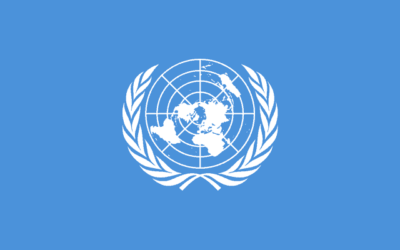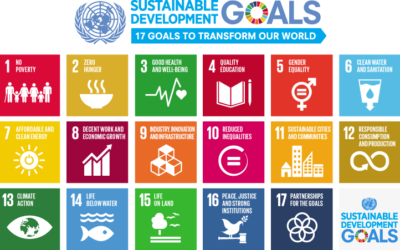“Business and human rights” is the idea that corporations and other businesses should avoid infringing on human rights such as life, livelihood, food, property, freedom of association, fair compensation, and safe working conditions. As such, the business and human rights agenda overlaps significantly with other agendas, including corporate social responsibility and sustainable development. However, those working on different agendas might not fully understand one another, as different narratives often come with different language and viewpoints. Building collaboration and shared understanding is crucial for advancing human rights and better societal conditions as a whole.
Below are just a few agendas that intersect with business and human rights; there are many more, such as unions and labour organizations, not yet listed here.
Corporate Social Responsibility
The terms “corporate social responsibility” and “business and human rights” are often used interchangeably. However, there are differences between the two. Both terms refer to the set of actions and responsibilities that businesses undertake in response to their potential impact on society. Businesspersons tend to use CSR language, and may not understand the difference between CSR and BHR.
Generally, CSR takes more of a philanthropy approach that focuses on positive contributions or donations. While these efforts can be very beneficial to local communities, CSR largely does not address negative impacts that the company may cause or contribute to. Companies taking a CSR approach may try to “offset” their negative impacts by donating money, building infrastructure, etc.
BHR, by contrast, focuses first and foremost on ensuring that companies do not infringe on human rights, including those outlined in the Universal Declaration of Human Rights. BHR recognizes that positive impacts in one area do not cancel out negative impacts in another area; for example, building a school does not cancel out environmental damage that has serious negative impacts on community members. BHR still welcomes philanthropy efforts and infrastructure projects, but such initiatives should be secondary to avoiding negative impacts.
Sustainable Development
While socioeconomic development is needed in the region, growth without human rights inherently undermines the stated purpose of development: to improve the lives and well-being of the individuals and communities within a society.
Adopted by all UN member states in 2015, the Sustainable Development Goals set targets for healthy socioeconomic development that respects human rights. More than 90 percent of SDG targets are linked to specific provisions of international human rights instruments and labour standards.
SDG 17, partnerships for the goals, recognizes the role of businesses and other stakeholders in realising the SDGs. The 2030 Agenda states: ‘Private business activity, investment and innovation are major drivers of productivity, inclusive economic growth and job creation. […] We call upon all businesses to apply their creativity and innovation to solving sustainable development challenges.’ As a result, business enterprises should consider how their projects and activities can help meet SDG targets, or at the very least, avoid impeding progress.
Many countries in Eastern Europe and Central Asia, including Armenia and Georgia, require major companies to engage in social investment projects with the aim of advancing socioeconomic development. While these projects are encouraged, companies should also ensure they are following a BHR approach and avoiding negative human rights impacts in all of their operations and activities.
Some of the above text adapted from the Danish Institute for Human Rights Human Rights Impact Assessment Toolbox.
Anti-Corruption
Corruption has significant negative impacts on human rights, especially as they relate to business and commercial interests. Businesses that have engaged in corruption are less likely to face accountability and justice for human rights violations, as the relevant state parties are often ‘dissuaded’ from investigating, punishing, and preventing rights abuses by these companies. As such, human rights abuses are often allowed to continue and are left unremedied.
In the notable ‘Kazakhgate’ case, a U.S. court found Mobil –a parent company of Tengizchevroil – had paid millions of dollars in bribes to Kazakhstan’s former president, Nursultan Nazarbayev. According to activists, these strong connections have allegedly helped Tengizchevroil escape serious consequences for illegal activity, including rights abuses.
Environment
A clean and healthy environment is crucial for the enjoyment of a number of rights, including food, water, health, and sanitation. Toxic pollution can lead to poisoning, death, and grave illness, undermining the rights to life and health. Environmental degradation can also destroy local agriculture and livelihoods, making it impossible for communities to feed and sustain themselves.
Companies can be major polluters of the environment. For example, just 100 companies account for 71% of global greenhouse gas emissions. Additionally, companies can use precious environmental resources that communities and ecosystems need to survive. Notably, nearly two-thirds of all water consumption goes into producing ingredients for corporate supply chains.
Business & Human Rights Resource Centre research into the 30 largest extractives companies in Armenia, Georgia, and Kazakhstan found that environmental pollution and degradation was the most common human rights issue, with 83% of the researched companies facing allegations. Significantly, all of the top 10 extractives companies in Kazakhstan and Armenia have been accused or found guilty of violating environmental standards, often to devastating effect. Five of the top companies in Georgia have also been documented as violating environmental rights. However, the other five may have environmental impacts that we did not find in our data collection, due to lack of information on environmental risks, impacts, reporting, and monitoring in the country. We believe this research is indicative of broader trends in Armenia, Georgia, and Kazakhstan, as well as the region as a whole.








